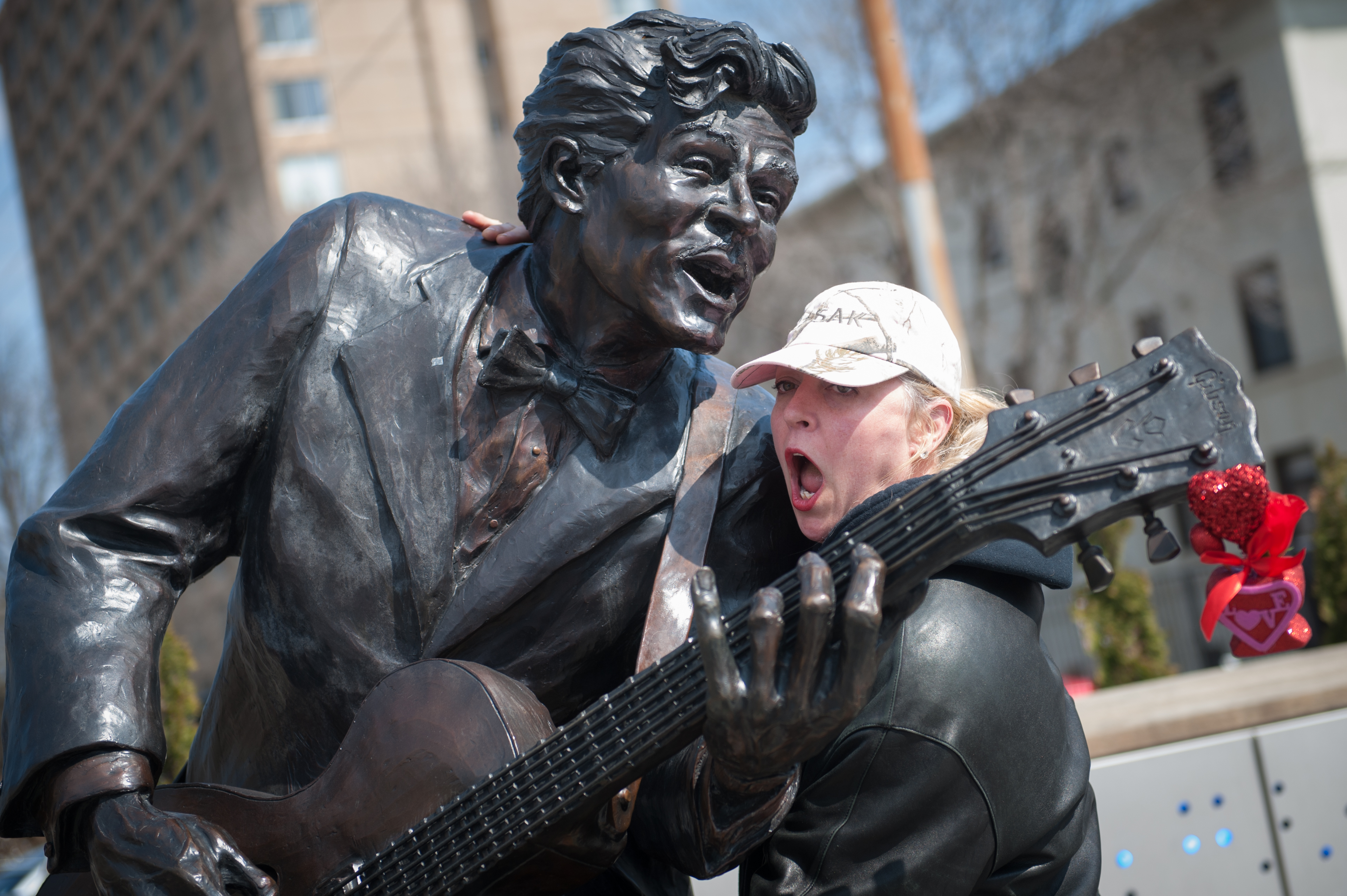
When Chuck Berry, one of the greatest and most influential rock ‘n’ rollers, died over the weekend at 90, something was missing from the radio airwaves: Chuck Berry.
He died on the weekend, which is death valley for radio’s ability to pivot, but Fred Jacobs, a radio consultant, writes today that it probably wouldn’t have mattered much. Most radio stations didn’t do what they often do when an iconic rock musician exits stage left.
It’s a demographics thing, he says.
He can still be heard in car radios, but only on the “’50s on 5” channel on satellite radio, the occasional HD2 Oldies station, and a handful of AM music stations where few are listening anymore.
The radio industry has walked away from formats that don’t age well, like Oldies and Soft AC because of their demographic drift past age age 54. And artists like Berry, the Beach Boys, the Motown gang, and many others are victims – along with the millions of fans who still love this music, still regularly listening to the radio, and still spend billions of dollars.
Ironically, many radio stations and companies are now facing challenges monetizing those coveted 25-54 demos, now fighting it out for every dollar and every avail. They’re finding that the omission of digital content and distribution outlets in pitches and campaign plans often translates to a failure to get on buys or garner respectable rates.
Shouldn’t there be a place on the air for whom the New York Times calls rock’s “master theorist and conceptual genius?”
Radio is for the hits, the theory goes. But Chuck Berry had only one number-one tune, and it came near the end of the most visible part of his career.
If Elvis Presley was the king of rock ‘n’ roll, Chuck Berry was its godfather, Rolling Stone says.
“He could write music, put on a show, play the guitar like ringin’ a bell, lived to the age of 90, was black, and Elvis could only do one of those things,” a wise commenter on the Times website said.
And maybe the fact his songs hold up in 2017 is a testament to that. “Back in the USA”, released in 1959, came after Berry was rattled by a tour of Australia in which he witnessed the mistreatment of Aborigines, Rolling Stone says.
It hit #37 on Billboard, not as high as Linda Ronstadt would take it more than a decade later with her cover.
“I want to thank him for all the inspirational music he gave to us,” Mick Jagger said upon hearing of Berry’s death. “He lit up our teenage years, and blew life into our dreams of being musicians and performers. His lyrics shone above others and threw a strange light on the American dream.”
“Chuck Berry was rock’s greatest practitioner, guitarist, and the greatest pure rock ‘n’ roll writer who ever lived,” Bruce Springsteen wrote.
At the long-gone Cleveland Municipal Stadium, 57,000 people — 57,000 people! — sang along with the two.
Of the original people present at the birth of rock ‘n’ roll, Slate’s Bill Wyman writes, Berry was not only the only one to write his own material, he was the only one to write substantive material.
He was writerly. He filled his songs with meanings and subtexts that resonate still today by means of a somewhat jokey but always intent poesy. And with those talents he added one thing to rock and roll it didn’t have before, and this thing he added might well be the thing that makes us talk about it, still today.
He wrote about a lot of things, but also this one special thing, which again puts him on a different plane from those who would otherwise have been his peers. Only one of the creators of rock and roll articulated this: That there was something new and important in the music he was playing, that the music itself, in a wild, potent way, meant something. He could see beyond the stylistic and personal differences of the players. He intuited—and again, he alone did this—that the music was big: bigger than any of its practitioners, bigger than anything that had come before.
“If you tried to give rock ‘n’ roll another name, you might have called it Chuck Berry,” John Lennon said once, as NPR’s Weekend Edition pointed out in its tribute on Sunday.
Demographics aside, surely there must still be a place on the radio for his work.
He was still performing at a St. Louis area restaurant right up until October. Radio left Chuck Berry long before he left us. It’s no way to treat him.
(h/t: Jonathan Blakley)
Related: Mary Lucia: Hail Hail Rock ‘n’ Roll (The Current)
